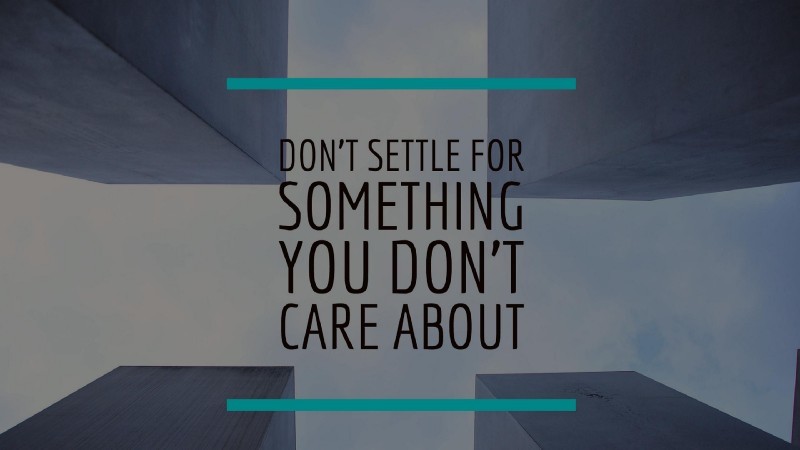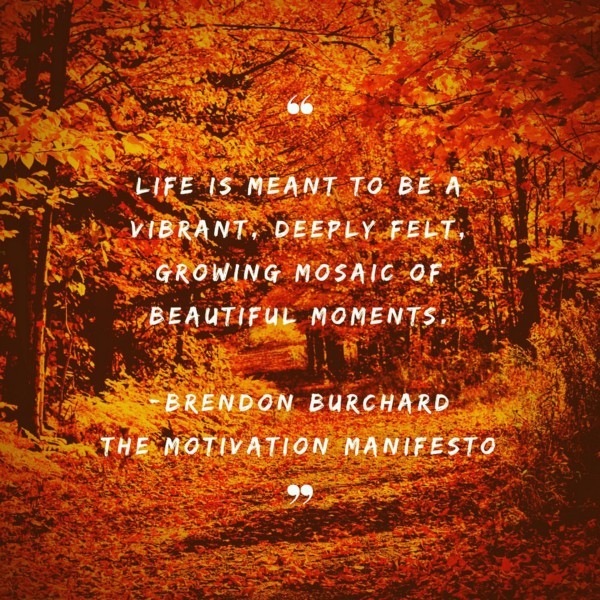You’re tired. You don’t want to continue, and you can’t find a reason to. You need a change. Sound familiar? Of course, it does. We have all been there — but we don’t have to stay there. To get out and change, we need to understand how we got to this place — how we became burned out.
I have gone through several cycles of burnout in my own life, and have come to understand this phenomenon intimately. Each time there have been two main aspects of my life that have led me down this path.
1.) The physical and mental toll of the workload.
2.) Not connecting the work to what I really want or care about.
I’ll go deeper into both these realms, but first I wanted to make an important distinction. At times when we are undergoing burnout and feel a compelling sense of urgency to change; we need to decide what to change. Is it our circumstances themselves? Or is it our habits, behaviors, and emotions? Sometimes it’s both. Sometimes our circumstances are altered by our behavior, and sometimes our behavior is altered by our circumstances. But, asking these questions and deciding where to begin the change is important.
If we rush out and get a new job, but keep the same habits, we will succumb to the same scenario eventually. If we change our habits, and start exercising and eating healthy, but remain in a passionless job, we may regress into bad habits as our environment does not support or empower the changes we are making.
A catch-22 that we need to know about before we even begin. Things to consider and think about as we march out of the dark pit of burnout and towards a healthy, fulfilling, and enjoyable life. We must change both aspects, but which do we prioritize?
It is always preferable to change and improve ourselves before we venture to change our circumstances drastically. A key factor that causes burnout is not investing enough time and energy into ourselves. Leaving us depleted and exhausted giving all our time and energy to everything but us.
Let’s get into the two factors that have led me to become burned out in my life, and what kind of shifts we can make that can cause our circumstances to begin to change.
The Physical and Mental Toll of the Workload:
Physical:
Our ancestors worked their asses off. Few of us in today’s modern world, at least in developed nations, have to undergo the same physically strenuous workload. The perils faced in an office are not the same as on a farm or in a factory. Even our farms and factories have seen some physicality offloaded to technological advances.
Now we face mental labor of increasing complexity or monotonous repetition on the other end of the spectrum. Now most people could do with adding physicality back into their work, hence the rising popularity of standing desks and the campaign saying “sitting is the new smoking”.
My point is that the physical toll is not as prevalent of a factor as far as a daily workflow for most middle-class and upper-middle-class members of our society.
However, in the truly blue collar world, the physical toll can still be a tremendous factor. Chefs, waiters, bartenders and all those in the hospitality/service industry utilize their bodies as much as their mental faculties. Postal workers, construction workers, landscapers, military personnel, and many other professions use their bodies and can succumb to the physical toll.

Any time we move our body we are training our nervous system. And any time we do not move and remain sedentary we are also training it. The physical toll can exhaust us from its volume, or deteriorate us from its lack. The condition of our bodies in relation to our ability to perform at work is undeniable, whether we are swinging a sledgehammer, or leading a board meeting.
So if we make changes to benefit the health and vitality of our physical body, we can combat burnout by taking the time to improve the very vessel that enables us to do whatever kind of work we choose.
Mental:
Thinking is part of every job. Often the conscious parts fade as repetition of a task allow it to engage our subconscious and go on auto-pilot. But, we all should still use our conscious aspects, and make choices about how we are going to cope with the mental side of our daily vocations.
Just as our physical workload varies based on our profession, so does our mental workload. A surgeon and chief executive both face high volumes of decisions and large consequences. Their ability to make these decisions in a stable and sound frame of mind is of extreme importance. A chef, line cook, waiter, or bartender all face the frantic pace and tremendous demands of their peak busy hours — and make hundreds of choices, and follow hundreds of mental patterns every hour. Every job demands our sharp mental capacities in some way or another.
We can carry this demand with us even outside of work, and this is where we can compound our likelihood of burnout. No matter what we do for a career, we should have a way to partition it from other areas mentally. The work-life balance, VS work-life integration debate aside — if we never disengage mentally from our work, we utilize all our cognitive resources and leave little left for ourselves, our families, and our other passions.
If we can’t develop a way to down regulate and disengage from a days work, then we are never actually away from it. If it dominates our thoughts long after we leave the office, we can start to numb out in our relationships, bodies and souls. There is no room in our brains for the other parts of our lives that matter because we are perpetually focused on the demands of our career. We are not even present.
Coping with the mental demands of our workload requires mindfulness and effort. Battling the constantly connected digital realm we see spreading, and the influx of stimulation everywhere. It is almost a physical detachment, as well as a mental detachment that we should explore. Setting aside our worries from the day’s work, and setting aside our digital devices. At least for parts of our day.
We find there are limits to our attention — not just for those labeled “Attention Deficit” either. Everyone has a threshold. Constant stimulation and stress can push anybody to their threshold of attention and focus. When we spread ourselves too mentally thin, it is natural to feel overwhelmed, because we are.
The mental side of burnout is linked with the physical. Mind-body connections and their direct link wellbeing have been talked about for decades, if not centuries.
We need time to mentally regenerate and truly unwind. Part of this needs to be away from electrical stimulus and screens. Whether it’s a morning meditation practice, a digital sabbath or even a complete digital detox, we can all do with some stimulus free time.
Not Connecting the Work to What We Really Want or Care About:
It is really easy to get burned out when we don’t like or care about what we’re doing. We can fake it for a while, but ultimately we will feel it. The hollowness of doing something we don’t love, and the emptiness of pursuing work we either no longer care about or never did care about.
I have definitely experienced this. The level of care within an organization and an individual is a predictive indicator of sustainability and success long term. What I mean by that is that the more care there is the longer you can do something, and the better the results.
For some, their main source of income is not their passion, or at least not their true passion. That’s okay. For some, they don’t know what their passion is. That’s okay too. What’s not okay is remaining in that kind of a life forever.
Stagnating in a position that is not enjoyable is a guarantee of burnout. Maybe not today, or tomorrow, but we will reach a point where we realize that our time is a non-renewable resource and money is not the ultimate endeavor of life. If we are suffering mentally, emotionally, physically, and spiritually to get the money then surely there are ways we can lessen or terminate the suffering and still earn money.
When I have felt the care fade or realized the care that I felt was not reciprocated from the organization or leadership, I walked away. Sometimes amicably sometimes not. I hold zero regrets for leaving positions that became emotionally draining or oppressive. Sometimes I left before I got completely burned out, other times it took the massiveness of complete physical and mental burnout to become the catalyst for action.
Life is sort, and we need to enjoy the maximum amount of it. Living for the weekends is not enough.
“You can fail at what you don’t want, so you might as well take a chance on doing what you love.” — Jim Carey

So I’m Burned Out: What Next?
If what you have read here resonates, you are in the right place. Here at Thrive Global we are fighting the battle against burnout and championing health and fulfillment. We are here to provide resources, inspiration, and information to help you, and others. You are not alone. Stay with us and we can recover together.

“Life is meant to be a vibrant, deeply felt, growing mosaic of beautiful moments.” — Brendon Burchard, The Motivation Manifesto
Originally published at medium.com


